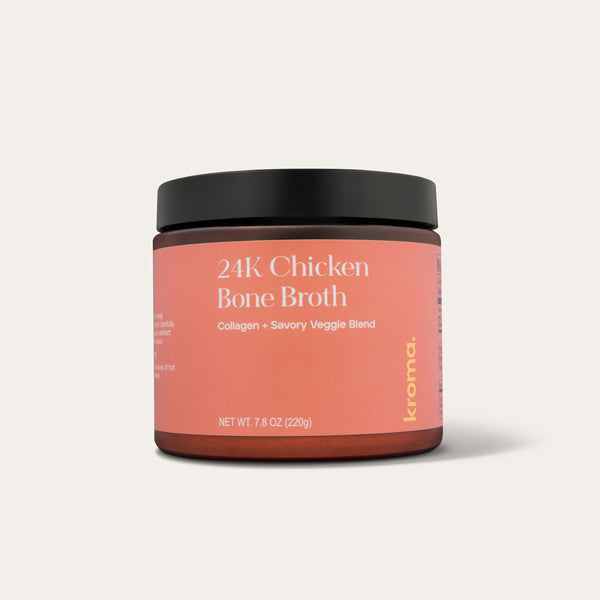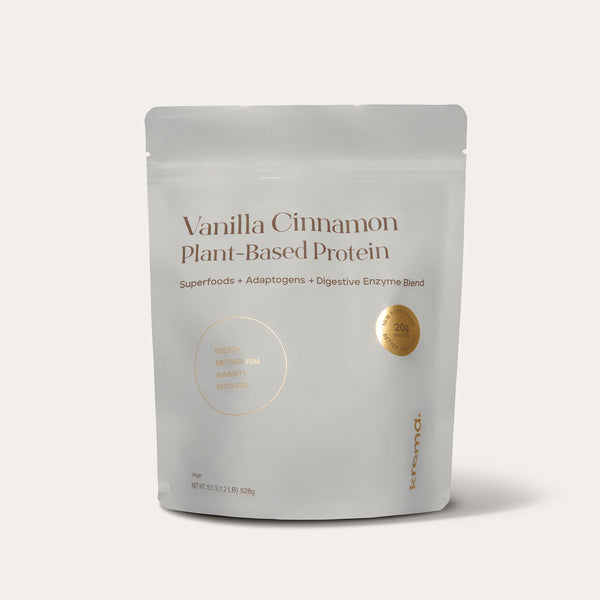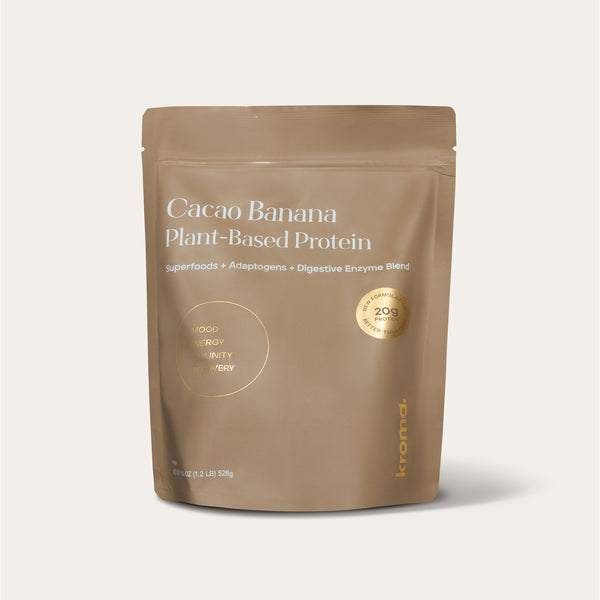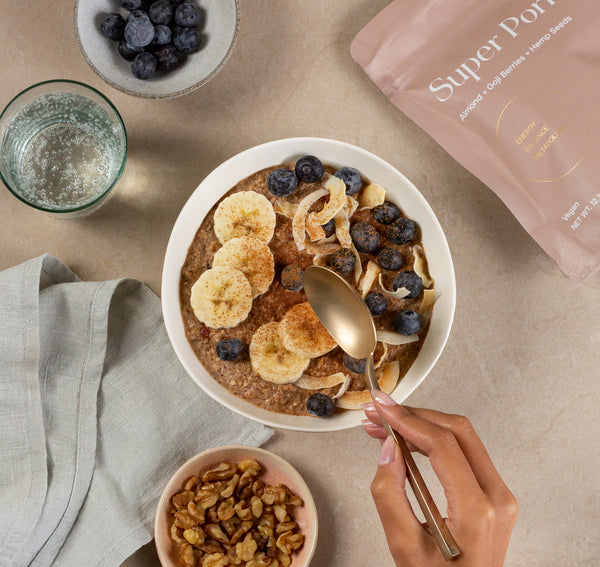Intermittent fasting (or IF for short) is an eating pattern that alternates between periods of eating and fasting. It has gained traction in health and wellness circles in recent years, particularly with women seeking metabolic and gastrointestinal support. However, introducing fasting into your diet can surprise the body. Fasting for an entire day can be challenging for anyone who has never practiced it before.
Understanding intermittent fasting do’s and don'ts is crucial to a successful experience. Properly incorporating IF involves supportive strategies to avoid energy depletion and counterproductive practices. Keep reading for a comprehensive review on how to fast properly and intermittent fasting schedules for women to help you discover what works best for you.
What Is Intermittent Fasting?
Broadly, intermittent fasting is a method of calorie restriction that entails scheduling time to refrain from eating. Based on what IF strategy you use, your fasting may include full 24-hour periods or shorter windows during the day.
All methods of IF include two components: designated times for eating and designated times for fasting or low-calorie intake. Intermittent fasting may provide various health benefits spanning from weight management to blood sugar and blood pressure management.
How to Fast Properly: 4 Different Methods of Intermittent Fasting
Choosing an intermittent fasting schedule that suits your lifestyle and health needs is essential to fasting properly. Start with a manageable fasting timeline and gradually adjust as your body adapts.
IF can be implemented through various methods and the one that is best for you will depend on your lifestyle, weight loss goals, and schedule. The four methods outlined below are different intermittent fasting schedules that can be incorporated into various lifestyles and wellness goals.
Eat-Stop-Eat Method

The Eat-Stop-Eat intermittent fasting diet is relatively straightforward: you eat, stop, then eat again. Schedule days throughout the week when you will be eating, broken up by one to two non-consecutive days committed to fasting.
Though you can’t eat on fasting days, you can drink non-caloric beverages, including water, tea, and coffee, on days when you can eat, prioritize whole fruits and veggies, protein-rich foods, and hydration.
The Perfect Fast Tea by Kroma Wellness is crafted specifically to support you through a longer, fast timeline. With energizing ginger to help support digestive comfort, this delicious and light tea will make some of those long stretches of your fasting window just a little bit more delightful.
Alternate Day
Alternate-day fasting differs from the Eat-Stop-Eat approach in that you alternate fasting every other day of the week. While fasting, you refrain from eating or keep a low-calorie intake. You can eat as much and whatever you'd like on non-fast days.
16/8
The 16/8 method differs from the previous approaches in that you are fasting across a daily, rather than weekly, scale.
Sixteen hours of the day are dedicated to fasting; the remaining eight hours are your eating window. You can have as many meals as you want after the 16-hour fast as long as it stays within your eight-hour window.
5/2
The 5/2 method, unlike the 16/8 method, returns to fasting across the week. With this IF strategy, five days a week are dedicated to regular eating, and two days limit caloric intake to less than 500 calories.
What’s the Best Fasting Timeline?
IF involves structuring specific times for consuming meals and periods for fasting or restricted calorie intake. The fasting timeline varies depending on the chosen IF strategy, allowing individuals to adapt fasting schedules to their lifestyles and health goals.
What Are the Benefits of Intermittent Fasting for Women?
Intermittent fasting can be helpful because it can bring focus to eating habits, promote weight loss, and support your body. However, IF may have different results for women than men, so some intermittent fasting schedules for women need to be modified.
Regardless of your gender, though, intermittent fasting can support a variety of functions in your body, including your metabolism, energy, and cognitive functioning.
Metabolism Support
If you are beginning or have gone through menopause, your metabolism may have been impacted by hormone fluctuations in your body.
Tailoring intermittent fasting schedules for women may involve modifying fasting durations or incorporating shorter fasting periods to align with hormonal balance and avoid potential disruptions.
Fasting, combined with a whole food, nutrient-rich diet, can support your metabolism and potentially reduce belly fat and ward off weight gain.
GI Support
Women’s intermittent fasting can support a healthier microbiome. When fasting, the presence of healthy bacteria can outlast those harmful bacteria in your gut. Additionally, fasting can help reset your gut microbiota, balancing out bacteria levels.
Cognitive Support
Fasting isn’t just for the body; it can be harnessed to support your cognitive functioning as well. Developing a routine and sticking to it can become a high-impact daily ritual and potentially improve your relationship with your body and the foods you eat.
Cellular Support
When you fast, your body begins critical cell repair processes, like removing waste from cells. Also occurring at the cellular level, insulin levels can drop significantly, which promotes fat burning.
Energy Support
When fasting, your body turns to sources other than food to produce energy. Eating whole-food-based and protein-rich foods on non-fasting days will support your body’s fast-induced cellular processes regulating energy.
What Are Some Disadvantages of Intermittent Fasting for Women?
Intermittent fasting for women can be difficult, and its impact on female bodies is still a relatively understudied area. If you are thinking about bringing IF into your life, consult with a registered dietician to ensure you are incorporating it as safely as possible.
May Impact Menstrual Cycle Regularity
A 2017 study of women who fasted during the Muslim holiday of Ramadan showed a significant change in menstrual cycles. This might come as unsurprising to women who know that weight loss or a decreased appetite can impact your menstrual cycle.
Regardless of why you choose to fast or the method of intermittent fasting you adopt, it may impact the regularity of your menstrual cycle.
May Interfere With Fertility
Since intermittent fasting for women has the potential to impact your menstrual cycle regularity, it may also interfere with your fertility. Conflicting studies show differences in the impact on fertility, so it is best to consult with your healthcare team before starting IF.
May Exacerbate PMS Symptoms
Because fasting naturally induces stressors in your body, doing so while experiencing PMS may be difficult. While there is no conclusive evidence about whether fasting exacerbates PMS, it can be fatiguing to fast on top of experiencing PMS symptoms. While experiencing PMS and menstruating, take it slow and potentially reduce your fasting for those two weeks.
Intermittent Fasting Tips for Women
Different styles of intermittent fasting for women might work better for some women than others. Here are some fasting tips that can support an effective wellness routine.
Get Enough Protein

Getting enough protein in your diet is generally a good move. Without protein, your body will likely be hungry for energy. By only eating foods with little-to-no protein, you restrict your body from important energy sources that it needs to sustain itself throughout the day.
If you're including intermittent fasting in your eating routine, getting enough protein is critical to carry your body through fasting days and your mind.
Kroma Broths feature both animal and plant-based proteins to power your body and mind during intermittent fasting. Choose our 24K Chicken Bone Broth for lean, animal protein or our Veggie Broth for a protein boost powered by 11 veggies and herbs.
Eat Well-Balanced Meals
Eating well-balanced meals is critical for any diet, like getting enough protein. Meal planning can be helpful if you are first starting IF, especially when it comes to making sure you are getting enough fruits, veggies, protein, and whole grains. Well-balanced meals should include a variety of vitamins and food types throughout the day to ensure you get enough nutrients.
Choose a Schedule That Works for You
Different methods of intermittent fasting will work differently depending on your lifestyle. Finding the best method for you may take some trial and error. For example, if you're a busy parent with children, your fasting needs may differ from someone single and working from home.
Try choosing a schedule that works for you so that you can remember when your fasting periods are and chart out meals, significant events, and even your menstrual cycle.
Listen to Your Body
The most important thing about intermittent fasting is to listen to your body. Your mind and body will likely experience some discomfort as you adjust from eating three meals a day to fasting for longer periods of time.
However, if your body responds uncomfortably, listen to it. Try to incorporate fasting slowly to avoid overwhelming your body or mind.
A helpful method for introducing fasting is to eat breakfast one hour later than you normally would, increase it to two hours, and then remove it completely. You can then remove a second meal of the day and increase your fasting window. Remember, everybody is different, and your plan for intermittent fasting will likely be as unique as you are.
Consult a Dietitian or Nutritionist
Working with a professional who understands nutrition, diets, and fasting can be supportive if you consider incorporating intermittent fasting into your lifestyle.
Dietitians and nutritionists are registered professionals who know about distinct methods and strategies for diet and nourishment for different body types. They will be able to get a better idea of your health and wellness goals and allergies or dietary restrictions to figure out what routine might work best for you.
Many people can experiment with intermittent fasting and learn the best method, but some prefer working with a dietitian or nutritionist to reduce some guesswork.
What Should I Avoid During Intermittent Fasting?
There are a few things to avoid when it comes to intermittent fasting, especially because it may be hard not to pick up that slice of cake on your fasting day. Gaining a better understanding of nourishing your body properly during IF can help you achieve better results.
Focus on Whole Foods, Not Empty Calories

Empty calories may taste good, but they won’t replenish your body's energy centers or keep you feeling full throughout the day. Empty calories include everything from sugar-packed beverages and candy to alcohol and highly processed foods. They are foods that, while tasting good at the moment, will leave you hungry.
Vegetables, fruits, whole grains, healthy fats, and protein are all whole foods that can help you achieve more sustainable energy levels. Smoothies can be an easy and delicious way to pack various superfoods into one meal or snack Kroma's Vanilla Cinnamon Plant-Based protein ,smoothie features chocho plant protein alongside digestive enzymes and coconut milk for healthy fats.
Eat Nutrient-Rich Meals — Don’t Just Snack
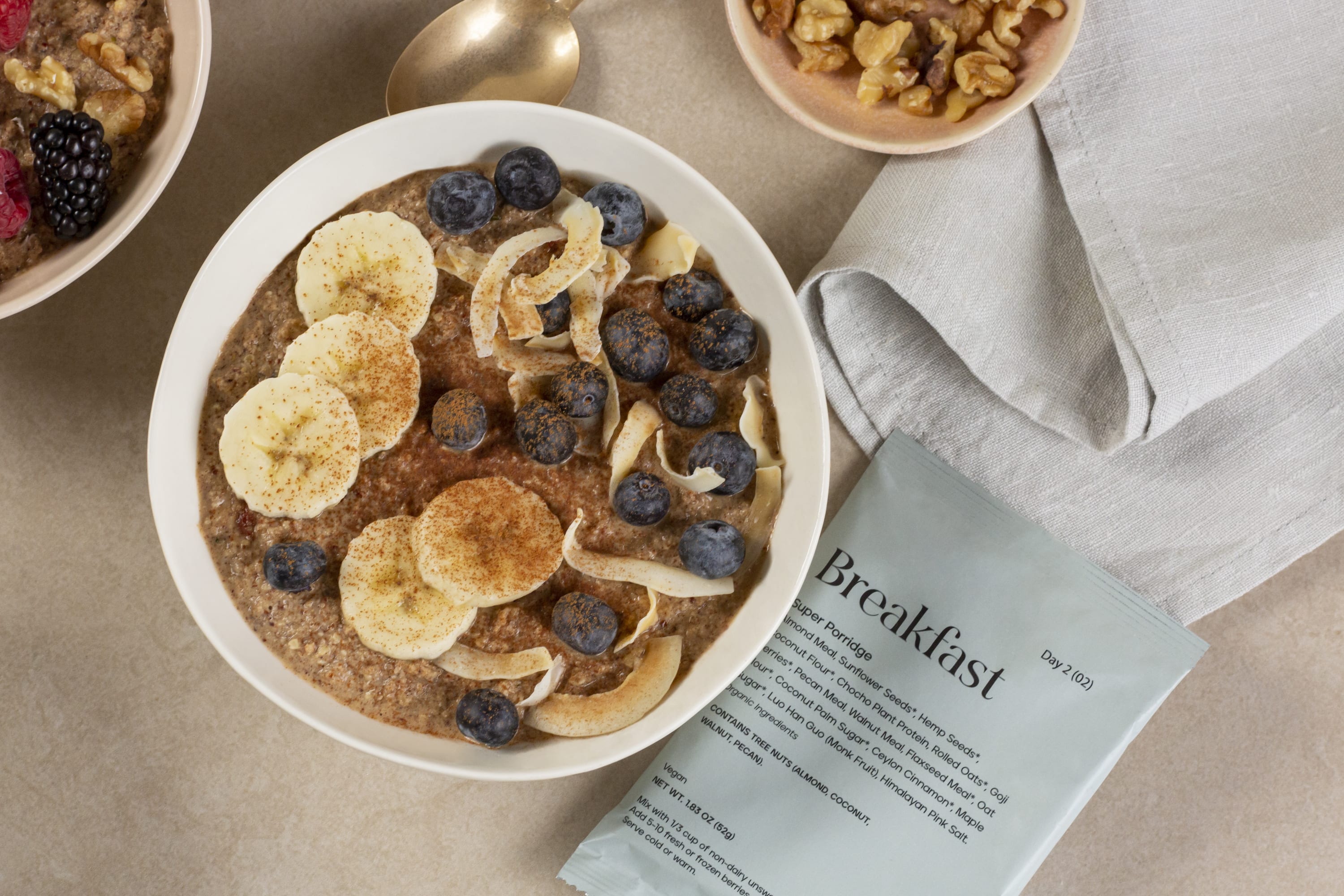

Though it might be tempting to snack all day and eat foods high in salt and sugar, nutrient-rich meals will fuel you through your day and keep you full through your fasting window. Supporting your body while fasting includes nourishing it during your non-fast days.
If you are going to reach for a snack on non-fast days, reach for a nutrient-dense food like Kroma Wellness’ Super Porridge. Packed with superfoods and protein, this coconut, goji berry, and cinnamon oatmeal will satisfy your craving for something sweet and leave you full and energized for the day ahead.
Don’t Rush Yourself While Adjusting
Adjusting from eating multiple meals every day to significant windows of fasting can prove challenging. After not eating for a couple of hours, you might be used to grabbing a snack to refuel, so don't rush yourself while adjusting to your new routine.
Hydrate as much as you can and stick to your normal daily routine outside of eating to maintain a level of stability and regularity throughout your days. Keeping a journal to track your emotional well-being while introducing IF can be a gentle way to support yourself and hold yourself accountable.
The Bottom Line
While some research remains inconclusive about intermittent fasting, a broad swath of studies about IF show how it can potentially be used to support your body. Intermittent fasting provides a flexible approach to managing calorie intake, offering a multitude of potential health benefits.
However, understanding the nuances of intermittent fasting do’s and don'ts, establishing proper fasting timelines, and considering women-specific intermittent fasting schedules are crucial aspects for the successful and safe adoption of this dietary regimen. That said, fasting impacts men and women differently, and fasting needs may shift across each female body.
Find an intermittent fasting method with a registered dietitian, create a schedule, and be gentle with yourself as you begin fasting to ensure it aligns with individual health needs. When you are eating, it’s important to eat a balanced mix of protein, fats, and carbohydrates. Kroma can help with that.








